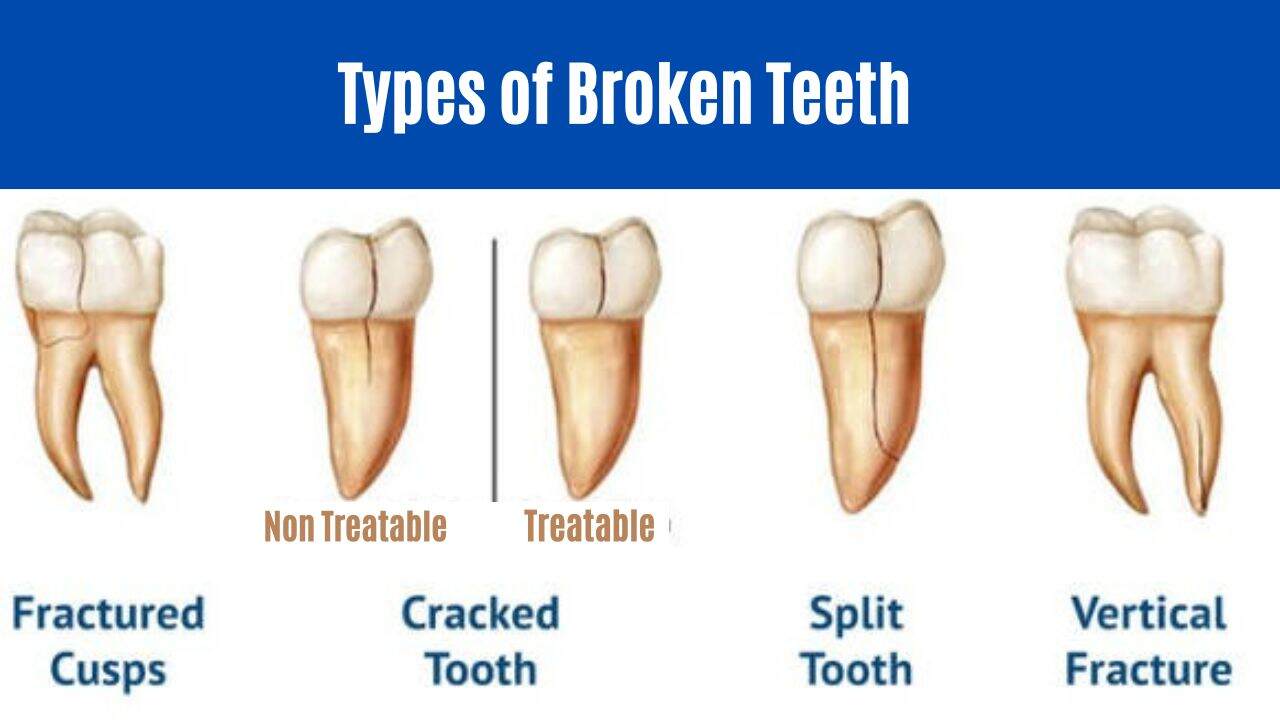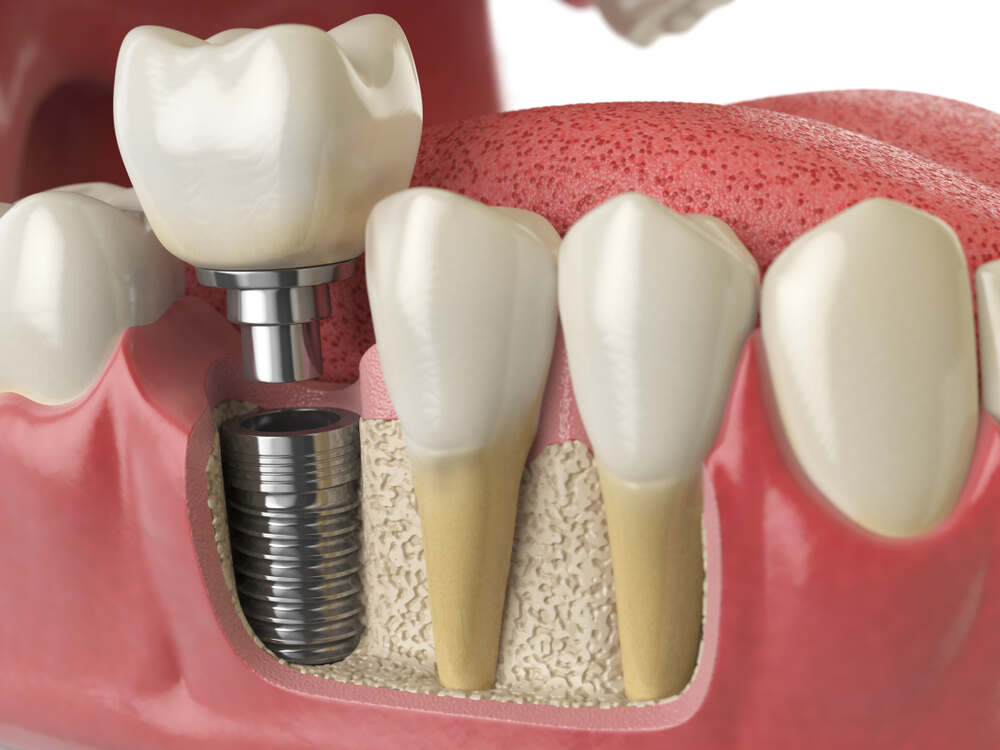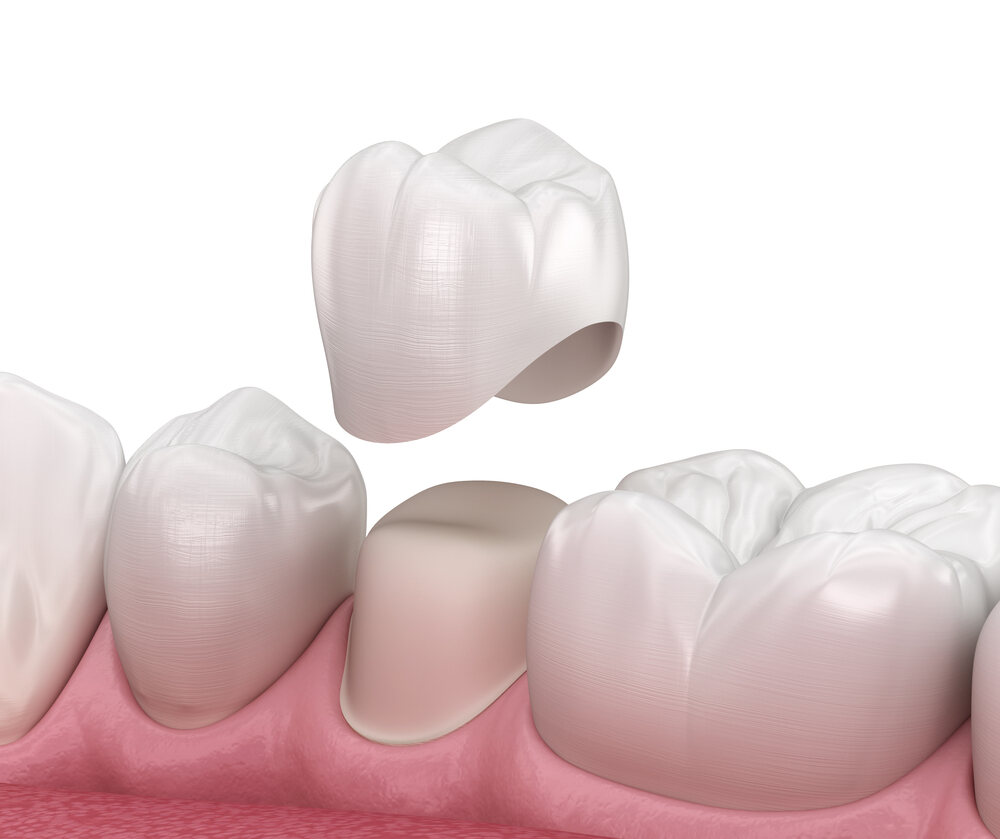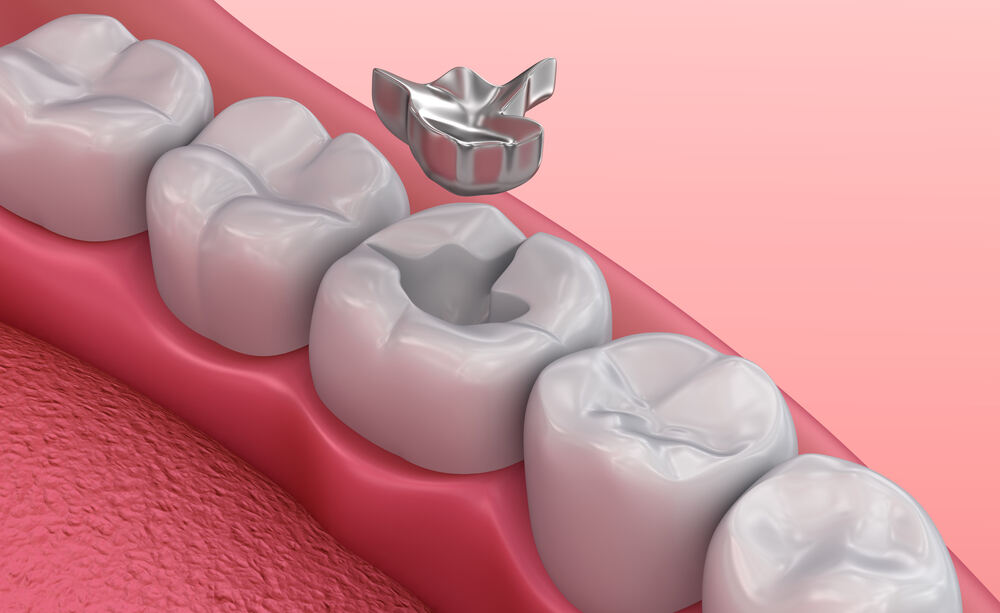You are not alone if you are dealing with a broken tooth. Broken teeth are one of the most prevalent dental issues that patients face. This post will cover what to do if you have a fractured tooth and what you need to know about broken teeth treatment. We will go over everything you need to know about cleaning and flossing to fillings and crowns. So, if you are experiencing discomfort in your smile, keep reading to find out what you need to know.
Broken Teeth Treatment
The broken teeth treatment is a dental operation involving repairing or replacing missing teeth. It entails replacing a lost tooth with a metal or plastic implant using dental implants. When teeth are shattered, they can no longer keep their appropriate place in your mouth. This can result in discomfort and trouble eating, drinking, and speaking. Broken teeth therapy is utilized to correct these issues by reconstructing the structure of the tooth so that it can once again keep its position in your mouth. The following are some of the advantages of broken teeth treatment:
- It restores your confidence and grin.
- It reduces the need for future dental treatments.
- Depending on the type of implant, the implant will endure for years.
- It can be done swiftly and painlessly.
Causes of Broken Teeth
Accidents, dental disorders, and tooth rot are all potential causes of broken teeth. The most frequent cause of fractured teeth is tooth decay, which occurs when plaque accumulates on the teeth. This plaque can then cause the enamel to erode, resulting in tooth fractures. Cavities and other dental issues can also result in broken teeth. There are several reasons for broken teeth treatment, the most prevalent of which are:
- Teeth grinding pressure
- Fillings that are so massive that they compromise the tooth’s integrity
- Hard items, like nuts, ice, or hard candies, are chewed or bitted
- Blows to the mouth, like those sustained in a vehicle accident, sports injury, or fall.
- Sudden temperature swings in the mouth, such as eating something really hot and then attempting to chill your mouth using cold water
- Most tooth fractures occur in adults over the age of 50.
Types of Broken Teeth

Depending on the severity of the damage and your budget, you can choose from several types of broken teeth treatment. The following are some of the most common types of broken teeth:
1. Craze lines
These fractures damage the enamel, that is, the exterior tooth’s white surface. They are also known as tiny cracks. They are frequently superficial and produce little discomfort. In addition, the dentist might merely have to polish the region to smooth down the hard places.
2. Fractured Cusp
This type of crack is most common for dental filling. It normally does not impact the tooth pulp (the soft interior of the tooth containing connective tissue, nerves, and blood vessels) and hence causes little pain.
3. Cracked Tooth
The crack involves the overall tooth, from the enamel to the nerves. Early recognition and treatment are critical for tooth preservation. Without treatment, the fracture widens and intensifies to the point that it can no longer be repaired.
4. Serious Breaks
Since it is severe enough to reveal the nerve, this sort of break nearly invariably produces tooth sensitivities and aches. The shattered component of the tooth can frequently bleed.
5. Split tooth
These are teeth with a fracture that runs from the gum line surface. It may be divided into two halves. With such a large break, saving the whole tooth is improbable, but the dentist could be able to recover a piece of it.
6. Vertical Root Fracture
This form of crack starts beneath the gum line and then progresses upward. Until the tooth gets diseased, it usually does not cause many symptoms. The teeth will very certainly have to be pulled.
Natural Treatment for Broken Teeth
A broken tooth may cause inflamed gums, pain, and discomfort. When coping with a broken tooth, the greatest thing an individual will be to consult a dentist immediately. Fortunately, several home broken teeth treatment
may be used to relieve pain and discomfort before visiting the dentist.\
1. Using ice to alleviate swelling
If your face is swollen, use ice in 15-minute increments for as long as needed. Wrap a cold pack or ice cubes in a cloth and place it on the swollen area of the face. If your fractured tooth was caused by a sports incident or accident, inflammation and bruises may take several days to resolve.
2. Employ gauze for blood
Stop bleeding by inserting clean gauze into the afflicted region of the mouth. When the gauze becomes saturated with blood, change it.
3. Take caution with what you consume.
A broken tooth may have an uncovered nerve that is particularly sensitive to foods and conditions. You must avoid the following:
- Coffee, alcoholic beverages, and acidic soda
- Cold drinks can induce severe zinging in exposed nerves.
- Nuts and celery can become trapped in the microscopic crevices in the teeth.
- Anything that is chewy and puts pressure on the tooth, like gum, steak, and candy.
- Fruits have seeds like raspberries and strawberries.
- Extremely sweet foods, such as sugar, provide more food for organisms in the mouth and can exacerbate tooth damage.
- Instead, consume soft, nourishing foods like roasted veggies, smoothies, and soup.
4. Use Pain Relievers
Use anti-inflammatories like naproxen or ibuprofen as directed on the label or as directed by a doctor to relieve swelling and pain. Acetaminophen can also be used to relieve discomfort. Never put a pain reliever on the gums since it might burn the tissue. Also, never provide benzocaine-containing medications to youngsters under the age of two.
What can you do Immediately at Home?
If you have broken teeth, you are undoubtedly experiencing various emotions, including anxiety, pain, and irritation. The good news is that there are numerous things you can do at home to assist relieve your discomfort and accelerate your recovery. Here are a few pointers:
- To minimize the pain you feel, use ibuprofen or acetaminophen as advised.
- To minimize swelling and inflammation, ice your mouth daily.
- To aid rapid recovery, eat light, bland meals low in sugar and carbohydrate.
- Drink plenty of drinks to prevent dehydration and keep your mouth hydrated.
What can dentists do for broken tooth repair? (Broken Teeth Treatment)
There are several ways to repair a broken tooth. Treatment is determined by the size of the crack, the symptoms, its location, and whether this crack spreads into the gum line. Your dentist may propose any of the following treatments based on these factors:
1. Root Canal

If a large part of the pulp is impacted or there is a great deal of discomfort connected with the fractured tooth, a root canal may be required. This therapy involves retaining the native tooth’s strong shell while eliminating the delicate pulp. To avoid the disease from spreading, the dentists first eliminate the problem and then put a crown. If the tooth’s residual structure and stability are in good shape, a root canal is usually performed at this point.
2. Dental Veneers

The composite resin substance or porcelain is used in the custom-made colorful shells. Dental veneers are the most used cosmetic and restorative treatments to enhance your smile. Dental veneers are the best alternative if you are afraid to smile because of tooth loss. The dental procedure is designed to alleviate dental and aesthetic concerns.
4. Dental Implant

Dental Implant is a lengthy operation used to repair fractured teeth, particularly those along the gum line. It is a straightforward procedure wherein dentists replace the fractured tooth with an implant. This treatment usually takes many months because your bone must repair all around the titanium frame.
5. Dental Crown

Dental crowns might be used to cover the entire afflicted area. They are an easy way to repair fractured teeth. They are sturdier than dental veneers and repair the form and look of the teeth. Dental crowns are typically constructed of porcelain, metal, or ceramic. Dentists believe it is the most secure method of repairing or restoring decaying or fractured teeth.
6. Filling

Fillings are one of the most secure dental treatments dentists use to repair fractured teeth. The dentist employs medicinal substances to repair broken or damaged teeth quickly. If the tooth seems to have a cavity, the dental procedure can help. It is both painless and cost-effective.
Post-Treatment Guidelines
When treating fractured teeth, there are a few crucial considerations to remember. The primary purpose of post-treatment instructions for broken teeth is to maintain oral health while restoring your teeth’ natural appearance and function to the greatest extent feasible. This means you should avoid any trauma or discomfort while dealing with damaged teeth and regularly see a dentist for inspections and repairs. The following are the post-treatment instructions:
- Pain relievers and antibiotics must be administered on time.
- Before going to the dentist, take painkillers like paracetamol or ibuprofen. This will assist to minimise discomfort during therapy and speed up the healing process.
- Resist rinsing, spitting, or cleaning your teeth for 12 hours after the treatment.
- Brush your teeth thoroughly after seeing the dentist; anything left on your teeth might cause difficulties in the future.
- You can clean your teeth after 24 hours. However, ignore the extraction area.
- After the process, the gauze utilized for therapy must be chewed for 30 minutes.
- If you consume hard foods or drink cold drinks immediately after dental surgery, you risk acquiring an infection.
How long do broken teeth take to recover?
Broken teeth can take many weeks to heal and the surrounding gums to return to normal size. Following that, you may need to see a dentist regularly to monitor the status of your teeth’s recovery. However, teeth will eventually recover independently in most situations, with no additional broken teeth treatment required. After the tooth has been fixed, it must be maintained with a particular sealant daily to prevent it from fracturing again.
The tooth is normally fully functioning after one to two weeks. Following 2-3 days, a regular diet can be resumed. However, caution should be exercised while consuming hard materials, and hard meals must be ignored.
Are the results of the treatment permanent?
Yes, the broken teeth treatment is everlasting if the individual doesn’t repeat the error of exerting excess pressure when eating an extremely hard foodstuff. Teeth should also be properly cared for to remain in good shape.
Cost of Broken Teeth Treatment in India
The cost of broken teeth treatment varies depending on the severity of the tooth loss and the type of treatment necessary. A damaged tooth might cost between Rs. 5,000 and Rs. 20,000 to fix. Additionally, there will be a consulting charge for the dentists and the price of the medications.
When to see a dentist?
It’s time to see a dentist if you have had a few broken teeth. Broken teeth can cause pain and suffering and interfere with your dental hygiene regimen. Your dentist will need to establish which sort of therapy is appropriate for you before treating fractured teeth. If you have pain or discomfort when chewing or biting, it’s time to see a dentist for fractured teeth repair.
Read Also : Teeth Gap Treatment
Conclusion
Broken teeth treatment is just a matter of time and patience. You should consult an expert in this sector for the finest outcomes. To summarise, the only way to keep your teeth from coming apart is to get frequent check-ups. If you have been disregarding this health routine for a long time and your teeth have started to appear poor in the last few months, don’t be afraid to see a doctor. This will aid in the maintenance of healthy and strong teeth. So, make an appointment immediately so we can begin treating your tooth injuries immediately!
You May Also Like
Frequently Asked Questions
If you have a broken tooth, contact your dentist immediately. Otherwise, your tooth might be more injured or infected, even leading to tooth loss.
Yes, it can be fixed. If you have a broken tooth, the dentist may be able to fix the loss with the filling. If the restoration is visible when you smile, the dentist will most likely utilize dental bonding, which involves using tooth-colored resin composites.
You can brush your teeth if you carefully rinse the surrounding region with mouthwash and water. Brushing, on the other hand, can lead to more harm if the tooth is significantly broken or missing. So, it’s better to avoid brushing if you have a broken tooth.
If your tooth splits in half, contact your dentist right once to schedule an appointment. Please notify them that your tooth has fractured in half. You must not delay seeking treatment for a fractured tooth. It may worsen and get infected.
Tooth decay and gum disease are two of the most common causes of teeth that break easily. Other factors include grinding, clenching, and poor mouth hygiene.


